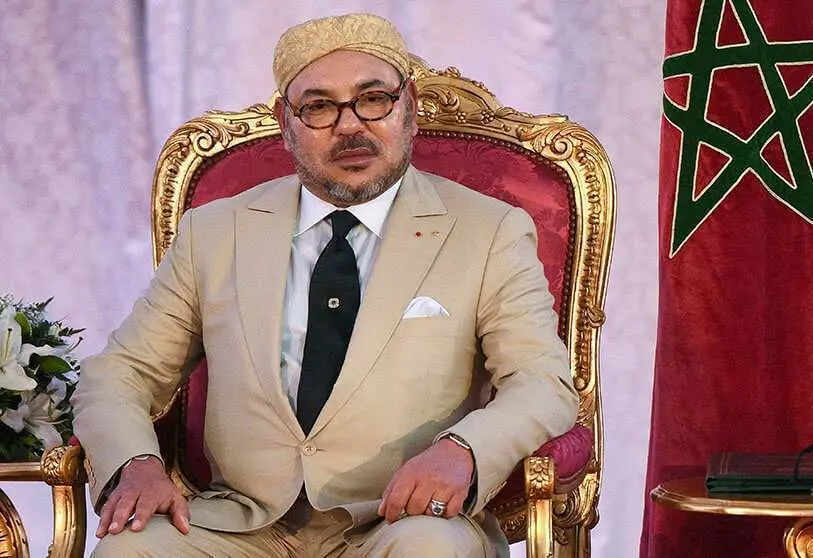Morocco resumes relations with Israel

The announcement was expected, the perfect moment. We knew it, and many people didn't want to believe it. But Trump promised. Morocco is normalizing its relations with Israel. The Moroccans discovered the news through a tweet from the president of the United States, who was faithful to his style of communicating on social networks.
The Royal Cabinet later communicated on the issue, taking care to specify that King Mohammed VI had spoken to the President of the Palestinian Authority Mahmoud Abbas : "His Majesty the King, may God preserve him, reaffirmed to His Excellency that the position of His Majesty the King in support of the Palestinian cause remains unchanged (. ...) In this regard, the Sovereign underlined that Morocco supports the two-state solution and that negotiations between the Palestinian and Israeli parties are the only way to achieve a definitive, lasting and global solution to this conflict".
Following these statements, attempts to demonstrate in support of Palestine took place in the Moroccan capital, Rabat, but were quickly dispersed by the police. While the Israelis were celebrating this return to normality, the Palestinians could not even express their dismay. This is confirmed by the Arabic language newspaper El Arabi El Jadid, which is led by the Palestinian politician Azmi Bishara. According to the same source, the Palestinian Authority has forbidden its administration from criticising normalisation between the Arab countries and Israel. The PLO Executive Committees and the Fatah administration in the West Bank have been ordered not to comment. Only Hamas in Gaza dared to call normalisation a "sin", thus respecting its religious rhetoric.
However, let us remember that only four months ago the anger of Mahmoud Abbas appeared when the United Arab Emirates recognised the State of Israel. The first man of the PLO rushed to call his ambassador to the Emirates and called an extraordinary session of the Arab League. Today the tone is more measured. Mahmoud Abbas is increasingly isolated and must deal with it.
In a few months, the Hebrew state has been steadily gaining ground, and Sudan, Bahrain and the United Arab Emirates now recognise it along with Egypt and Jordan. Very few of the Palestinian Authority's allies remain in the region. Fatah is losing ground internally and internationally, while Hamas is becoming more radical.
Benjamin Netanyahu described the agreement with Morocco as historic. But it was an open secret. The Israeli press had announced it several months ago following the visit of the head of American diplomacy, Mike Pompeo, to Morocco. At that time the head of the Moroccan government, El Othmani, who heads the Islamist party PJD, was quick to deny any possibility of normalisation between the two countries. Having been called to order, he revoked his statement a few days later to say that this position was that of his party and not that of the state.
For Morocco, the deal is big. The question of the Sahara, which is disputed by the Cherifian kingdom and the Polisario separatists, weighed heavily in the negotiations. Trump recognises Morocco's sovereignty over the Sahara and American investment in the region is already expected.
In Mohammed VI's country it is not a question of linking the two conflicts. "Relations between Morocco and Israel were already normal", the Moroccan foreign minister, Nasser Bourita, told the press and the Israeli daily Yediot Aharonot.
In fact, in 1994, King Hassan II had established diplomatic relations through liaison offices between the two countries. He was the third country, after Egypt and Jordan, to recognise Israel. Ties that his successor to the throne, Mohammed VI, had broken after the second intifada in 2000 in support of the Palestinian people. But, 20 years later, a lot of water has passed under the bridge.
In Israel, the scenes of joy and happiness were broadcasted by the TV stations. The Jews in Morocco want to be able to visit the land of their parents and grandparents again without any difficulties. Furthermore, a link between the two countries is planned in the coming months. For the record in Morocco, the 700 mausoleums of Jewish saints attract some 80,000 pilgrims a year. A rather juicy business that could be developed further.
Today, there are still some 2,000 Jews in the kingdom and Mohammed VI, who carries the banner of Amir al-Mouaminin (Commander of the Believers), is also a protector of minorities. On 12 November, the king announced the introduction of the teaching of Judaism in Moroccan public schools, thereby initiating a new policy in the region.
Furthermore, as Chairman of the Al-Quds Committee, Mohamed VI has a role to play in the special status of the city of Jerusalem. Is the annexation of East Jerusalem part of the negotiations? The coming months will tell us!

